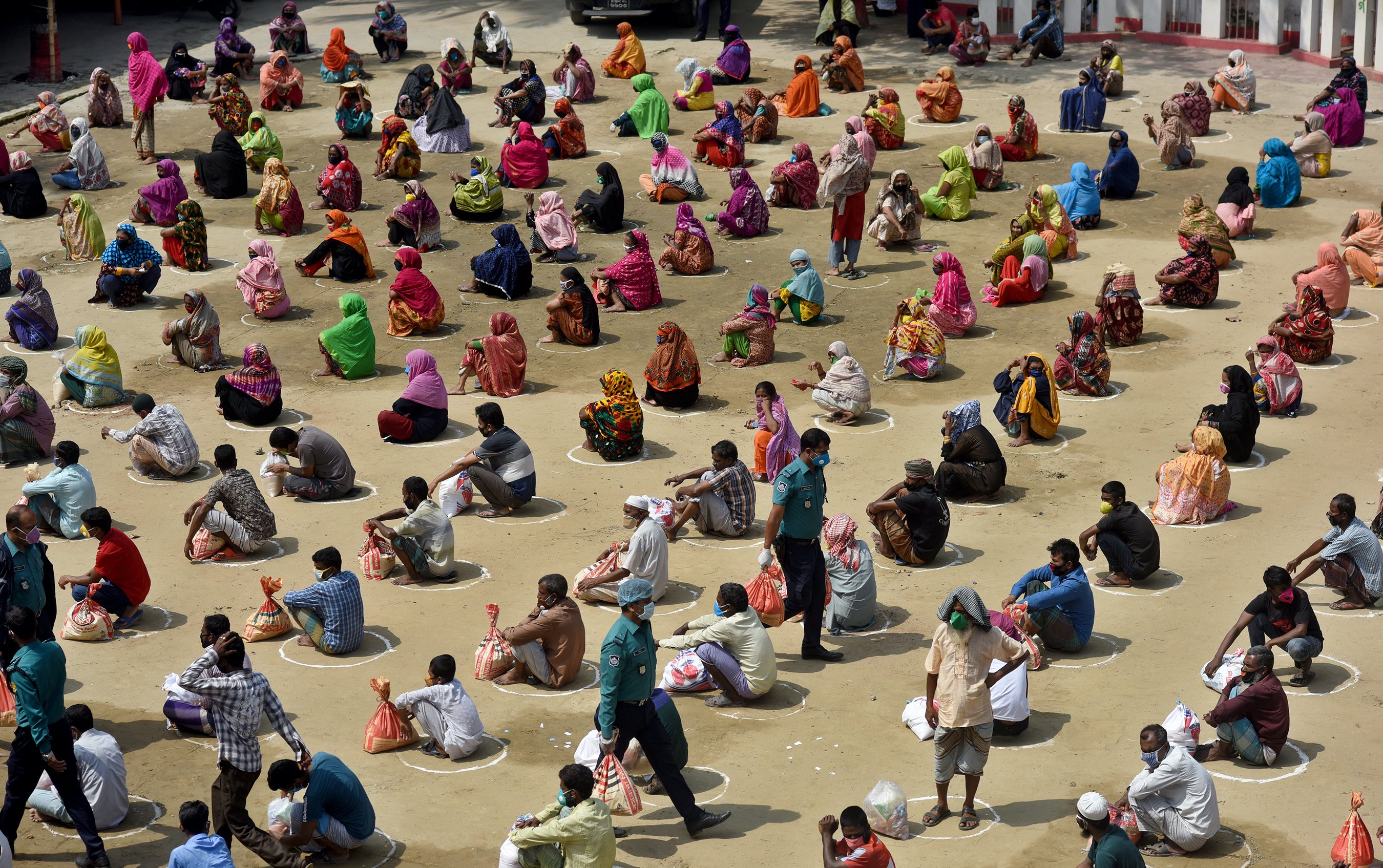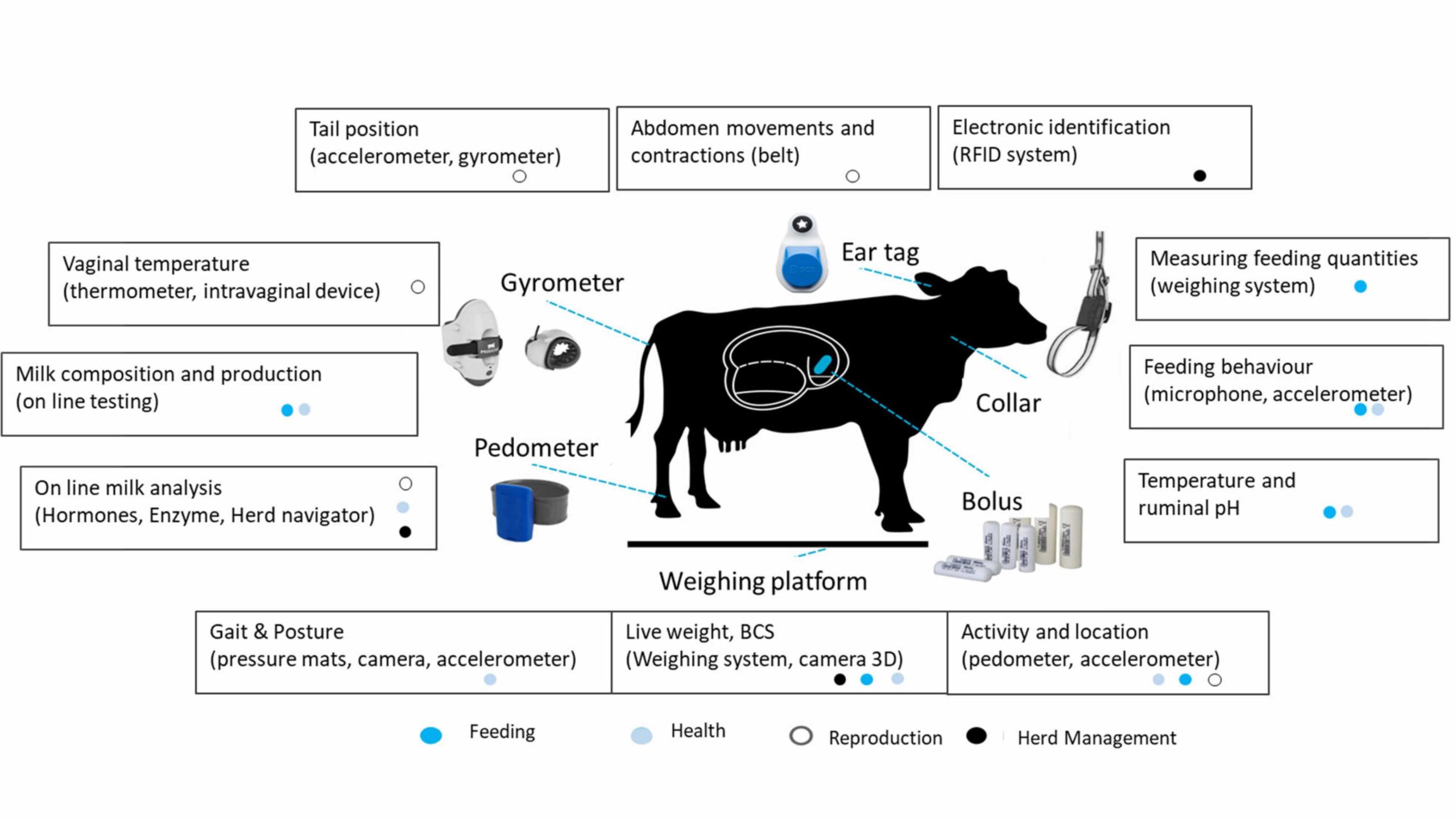Bangladesh’s March-May 2020 COVID-19 lockdown has had severe consequences for the incomes and food security of poor households. Public food transfer programs have traditionally been the most common social protection programs in Bangladesh. The largest, the Food Friendly Program (FFP), was favorably evaluated in 2018, but during the lockdown it experienced disruptions and poor delivery performance. In this post, Shyamal Chowdhury, Nahian Bin Khaled, Kalyani Raghunathan, and Shahidur Rashid describe these challenges and suggest how the FFP and other programs could be monitored to improve their adaptability in emergencies.—John McDermott, series co-editor and Director, CGIAR Research Program on Agriculture for Nutrition and Health (A4NH).
Public food transfer programs serve as an important safety net for those facing hunger and food insecurity in both low and high-income countries around the world. During the COVID-19 pandemic, these programs have become even more crucial, as food insecurity and poverty rates have soared. But lockdowns and other public health restrictions can also disrupt food distribution operations and thus limit their effectiveness.
Bangladesh has several overlapping food transfer programs. The largest of these, the Food Friendly Program (FFP), provides 30 kg of rice per month per eligible family in the lean season months of March-April and September-November, reaching roughly 27.5 million people annually. In response to COVID-19, the government of Bangladesh expanded the FFP, making available an additional month of transfers to existing beneficiaries in May 2020. However, our research, outlined in a new policy brief, shows that the program did not deliver the full allotments of rice to recipients, complicating efforts to alleviate severe economic impacts.
In 2018, IFPRI conducted a study to evaluate the FFP performance and found the program to be functioning well. The study was based on a nationally representative sample of 4,526 households along with other actors—dealers, Upazila (sub-district-level) food controllers, local administrators such as Union Chairmen—involved in the program. As the concerns began growing about the impact of the pandemic and lockdown (termed as “general holiday), imposed from March 26-May 31, 2020, we decided to conduct phone interviews of the same households from the 2018 study in order to better understand how the program fared in addressing the pandemic-induced challenges of food insecurities, job losses, and reduced incomes. The survey was completed in Aug. 2020 and the surveyors were able to interview 2,800 out of the original sample of 4,526 households. An analysis showed that the key household characteristics are similar for both survey rounds, indicating the two samples are comparable.
The survey results highlight the particularly severe impacts of the pandemic on the poor, with more than half the respondents reporting that the primary income-earning member of their household had lost their job, and 90% reporting that their July 2020 income was less than their pre-pandemic income.
Households were forced to resort to a variety of coping strategies to meet basic needs, including reducing expenditures on health (62%) and non-food items like clothes and education (90%), and spending from their savings (76%). Access to credit from formal institutions was limited, and most relied on borrowing from within their informal networks of friends and family.
As COVID-19 exacerbated existing food insecurity and poverty, food transfer programs became more important than ever as a source for meeting basic food needs. But the survey results show the FFP program fell short. Just 64% of respondents reported receiving their full entitlement of 60 kg of rice in March-April, and 58% reported receiving less than 10 kg of the promised 30 kg in May. This substantial shortfall highlights the failure of the FFP to function effectively while facing a crisis such as a pandemic.
Several factors could have caused the program to falter, including supply disruptions, restrictions on movement, as well as lack of proper information about houshold eligibility conditions. For example, of the households removed from the program, a majority (36.7%) did not know the reason, another 23% thought they were removed without valid justification, and about 13% thought they were excluded because of disagreements with local officials.
The partial failure of safety net programs such as the FFP to adequately adapt to unanticipated shocks like COVID-19 has real financial and human costs. While other modalities of social protection, such as cash transfers, are also employed globally, food transfer programs remain the preferred ones in Bangladesh, making them an essential tool for mitigating the impact of major shocks.
Thus, we need to assess the costs of these programs, evaluate their effectiveness, and devise strategies to both broaden and deepen their reach. Our primary policy recommendation going forward is to set up routine monitoring mechanisms for FFP and similar safety net programs using digitally-enabled small sample phone surveys. That would allow the government to identify and address distribution challenges in real time, helping to avert spikes in food insecurity and hunger.
In addition to increasing research and monitoring, there is an additional challenge of identifying the “new poor”—those pushed into poverty by COVID-19—so that safety net programs can adapt to help them as well. Bangladesh did not broaden the FFP to include additional beneficiaries during the pandemic, meaning that people who did not qualify for this public food transfer program pre-pandemic were not eligible for any support. Moving forward, dynamic targeting should be used to identify those pushed into poverty because of economic shocks and include them in aid efforts.
The COVID-19 pandemic has highlighted both the vulnerabilities of our economic systems and the potential of technology-based solutions such as phone surveys to overcome some of the logistical challenges unanticipated shocks can present to effectively implementing, monitoring, and evaluating safety-net programs. Harnessing such technology and applying dynamic targeting criteria can help safety net programs adapt to sudden shocks and further enhance their impact on hunger, poverty, and the overall economy.
Shyamal Chowdhury is an Associate Professor of Economics at the University of Sydney, Australia; Nahian Bin Khaled is a Research Analyst with IFPRI’s Development Strategy and Governance Division (DSGD), based in Dhaka, Bangladesh; Kalyani Raghunathan is a Research Fellow with IFPRI’s Poverty, Health, and Nutrition Division, based in New Delhi; Shahidur Rashid is IFPRI’s South Asia Director, based in New Delhi; Honor Dearlove is a former IFPRI Communications Intern. The analysis and opinions expressed in this piece are solely those of the authors.
This work received fnancial support from the government of Bangladesh (under a World Bank loan) and USAID (through ReSAKSS-Asia).







